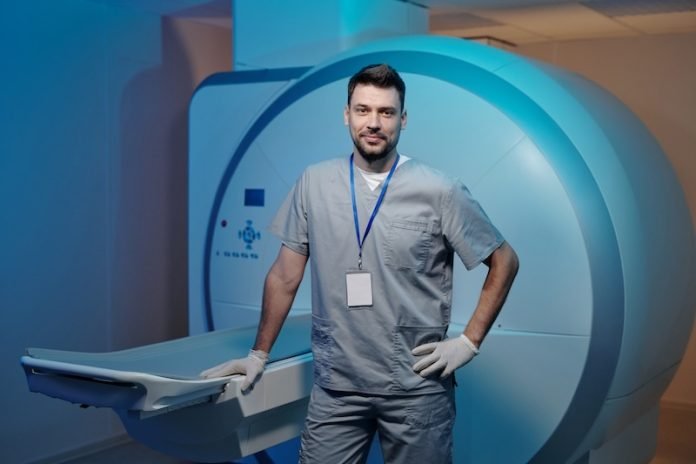
Stroke is a life-threatening condition where time is of the essence. Rapid treatment significantly improves outcomes, but early diagnosis is crucial.
To address this challenge, researchers at the Medical University of South Carolina (MUSC) have collaborated with Charleston County Emergency Medical Services (EMS) to equip an ambulance with a portable MRI.
This groundbreaking innovation aims to accelerate diagnostic studies, enhance decision-making, and ultimately improve stroke care.
Stroke is a prevalent and deadly condition in the United States, with someone experiencing a stroke every 40 seconds and a stroke-related death occurring every three minutes and 14 seconds, according to the Centers for Disease Control and Prevention (CDC).
Experts emphasize the critical role of time in stroke care. Faster diagnosis and treatment lead to better outcomes, particularly for interventions like administering the clot-busting drug tPA, which has a narrow time window for effectiveness.
While rapid treatment is essential, a significant challenge lies in the diagnostic phase. Determining the type of stroke and the appropriate treatment pathway involves diagnostic studies, which can be time-consuming.
The MRI-Equipped Ambulance Solution
Led by Dr. Donna Roberts, M.D., and including Dr. Jillian Harvey, Ph.D., the MUSC research team embarked on a groundbreaking initiative. They transformed an ambulance by installing a portable MRI scanner, potentially revolutionizing stroke care.
The Potential Impact:
The portable MRI-equipped ambulance offers several potential benefits for stroke care:
Enhanced Decision-Making: The onboard MRI scanner can provide crucial imaging information that helps healthcare providers determine the most appropriate treatment path for stroke patients.
For instance, it can differentiate between those who may benefit from tPA and those requiring more advanced procedures.
Speeding Up Stroke Response: The availability of MRI imaging during ambulance transit enables healthcare teams to initiate the decision-making process before reaching the hospital. This has the potential to significantly reduce the time to care and treatment.
Rural Accessibility: The portable MRI-equipped ambulance could be especially valuable in rural areas where patients may be located hours away from an MRI facility. This technology can bridge the gap in access to critical diagnostic tools.
Compared to traditional CT scanners used in some mobile stroke units, the portable MRI has several advantages. It carries no radiation risk, and its lower magnetic field minimizes safety concerns related to metal objects.
Additionally, it can identify stroke patients even without a clear timeline of the stroke’s onset.
The research team collaborated with Charleston County EMS to conduct a trial run. They drove the ambulance, equipped with the portable MRI, around a controlled environment.
During this test, they successfully obtained diagnostic-quality images of a healthy volunteer, which were transmitted to hospital radiologists for review.
While the initial results are promising, more research is needed to assess whether diagnostic-quality images can be obtained when the ambulance is traveling at full speed.
The team is also working on optimizing the ergonomic fit of the MRI in the ambulance in collaboration with the Clemson School of Engineering.
With further advancements and clinical studies, MRI-equipped ambulances have the potential to transform emergency medicine, ensuring that stroke patients receive timely and effective care, even before arriving at the hospital.
Conclusion
The portable MRI-equipped ambulance represents a significant advancement in stroke care, emphasizing the importance of bringing medical services directly to the patient.
This innovative approach aligns with the goal of improving stroke outcomes by minimizing delays in diagnosis and treatment, ultimately saving lives.
If you care about stroke, please read studies about how to eat to prevent stroke, and diets high in flavonoids could help reduce stroke risk.
For more information about health, please see recent studies about how Mediterranean diet could protect your brain health, and wild blueberries can benefit your heart and brain.
The research findings can be found in the Journal of Stroke and Cerebrovascular Diseases.
Follow us on Twitter for more articles about this topic.
Copyright © 2023 Knowridge Science Report. All rights reserved.



